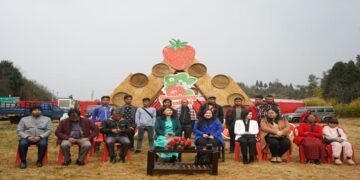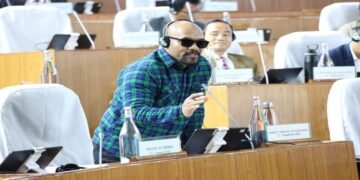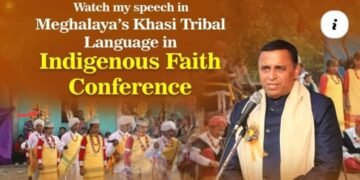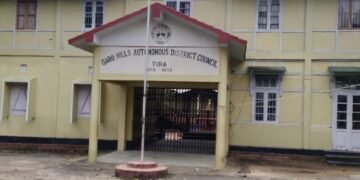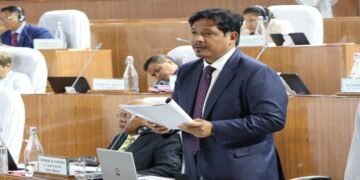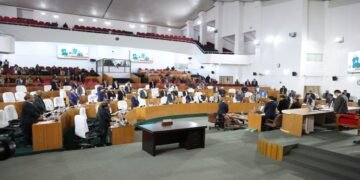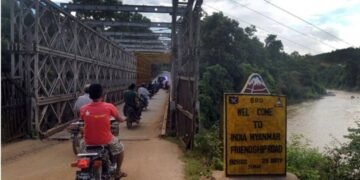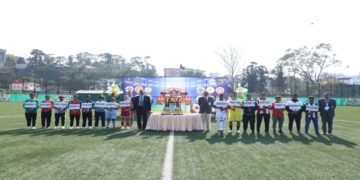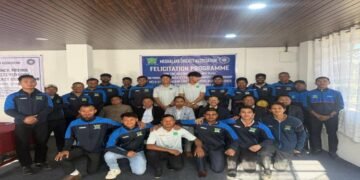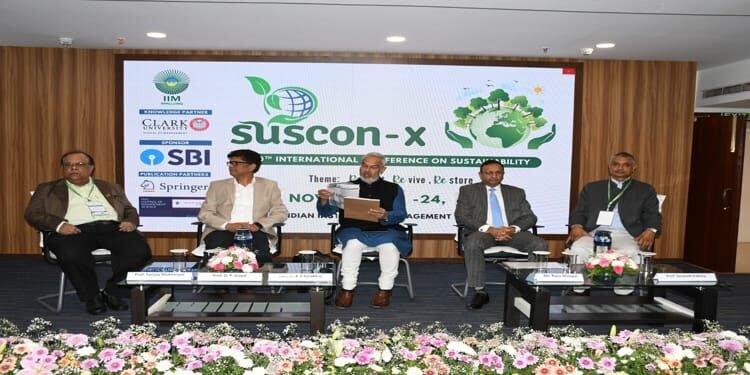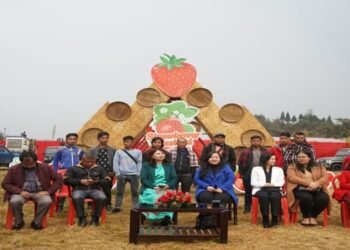Shillong (Meghalaya), Nov 25: The 10th International Conference on Sustainability, SUSCON X, successfully concluded, marking a significant milestone in addressing global sustainability challenges. The three-day intellectual exchange drew the participation of 120 global delegates, creating a platform for impactful discussions and groundbreaking insights. The International Conference was partnered by Clark University, as a Knowledge Partner, Sponsorship Partner by the State Bank of India (SBI), Publication Partners were IIMS Journal of Management Science, supported by SAGE and Springer.
The theme of the SUSCON-X was Revisit, Revive, and Restore – that provided an essential forum for an in-depth exploration of pressing sustainability issues. A total of 77 meticulously crafted research papers were presented and categorized into 15 distinct technical sessions. These sessions comprehensively addressed sustainability through seven different lenses of Management, including Economics and Public Policy, Finance and Control, Organizational Behavior and Human Resource, Operations and Quantitative Techniques, Marketing, Information System and Analytics, and Strategy and Liberal Studies.
The inaugural ceremony set a tone of inspiration and insight, with Prof. D. P. Goyal, Director of IIM Shillong, extending a warm welcome to participants. Prof. Sanjoy Mukherjee, Conference Chairperson, introduced the conference theme, and Prof. Sanjeeb Kakoty, Conference Co-Chairperson, stimulated contemplation on visualizing sustainability challenges. The inaugural ceremony was graced by the presence of Rajiv Mangal, Vice President of Safety, Health & Sustainability at Tata Steel who graced the occasion as Chief Guest. Mangal, discussed the lifecycle assessment in Steel industry from the perspective of environment, technology, society and costing. Highlighting certain initiatives of Tata group like Project Aalingana and their NET Zero Target of 2025, he discussed the bigger picture on sustainability that the TATA group practices on the whole. Conference Guest of Honour, Padmashree Kartikeya Vikram Sarabhai, a global leader in environmental education and a dedicated community builder – who discussed the role of lifestyle in ensuring sustainability. He brought forward a new perspective on sustainability which not only talks about use and consumption of resources but also the environmental impact of these consumptions that left all with an idea of not just counting the footprints but also highlighting the significance of palm prints, that depicts the positive impact on environmental sustainability, he brought an end to the inaugural ceremony. Keynote session by Sekhar Prabhakar– CEO and Founder of CEdge Software Consultants and a social entrepreneur who has closely been working with the silent environmentalists – the waste pickers, taking reference to his organization – Hasiru Dala, he emphasized on people-centric sustainability initiatives that could be replicated all over the country.
Professor Lin Peng, a Professor of Finance at Baruch College, the City University of New York– In her virtual address to the participants, she brought forward the idea of ESG-Linked Pay Around the World. She presented a detailed view on the recent Trends, Determinants, and Outcomes of the ESG concept. The second day commenced with a thought-provoking address by Prof. Sanjeeb Kakoty on measuring intangibles, the role of the community sector, and the significance of Biomimicry in sustainability.
The event’s valedictory ceremony expressed gratitude to participants for their valuable contributions, with hopes that the feedback received would aid in the continued development of research papers. The 10th Edition of SUSCON-X was rich in content. SUSCON, is not merely a conference; it is a movement. It has created a platform for global dialogues and deliberations, aspiring to shape a value-based, humane, and sustainable future. SUSCON dreams of leaving behind ethically driven business organizations, a harmonious society, and a sustainable planet, fostered by visionary leaders from academic and research institutions.


